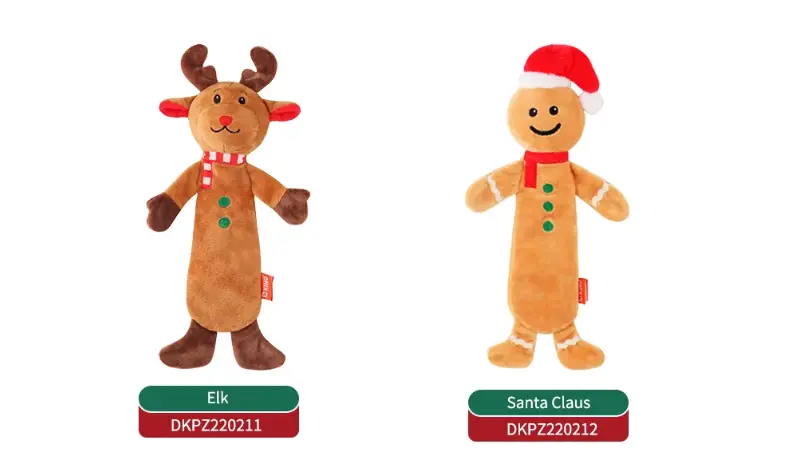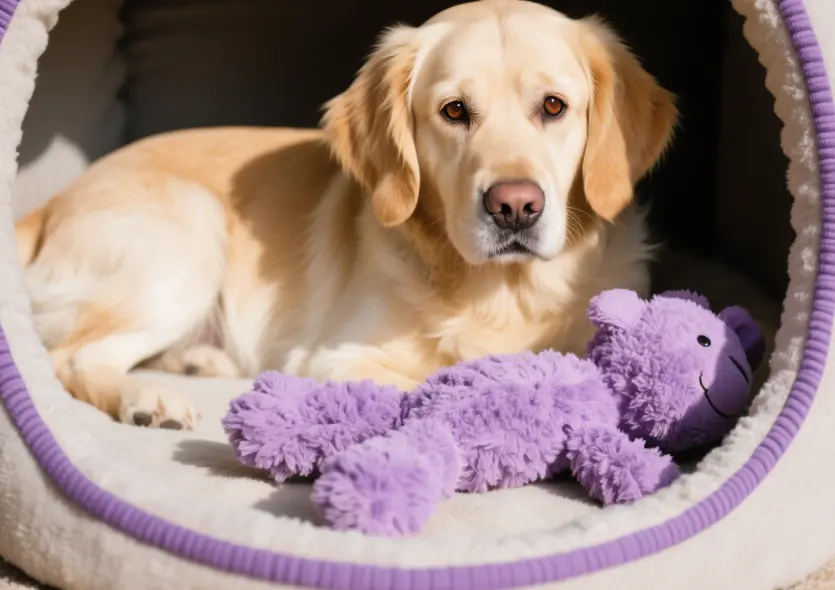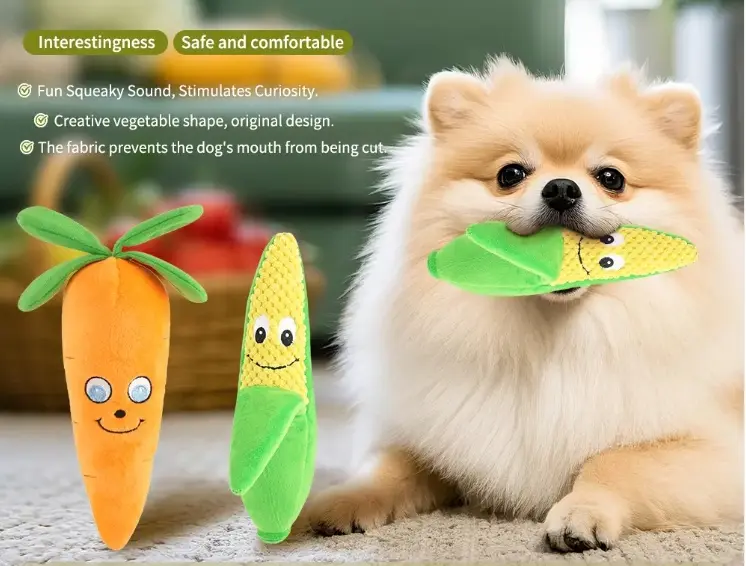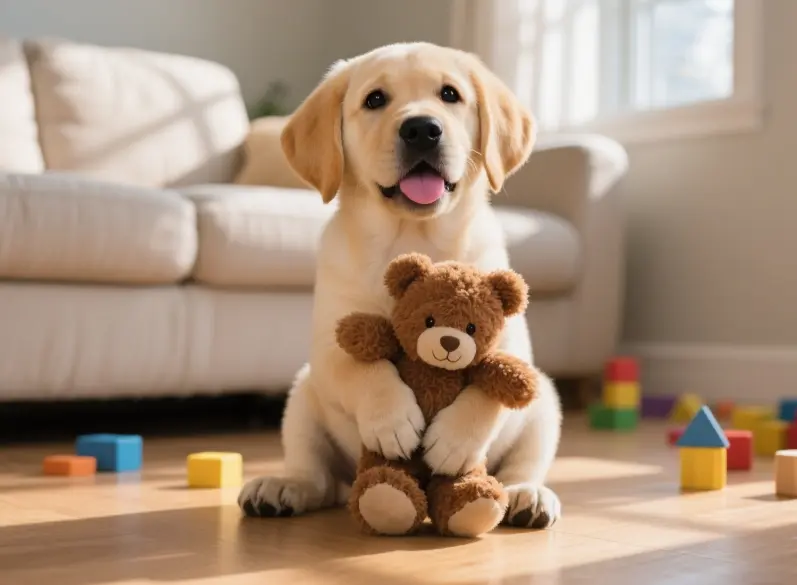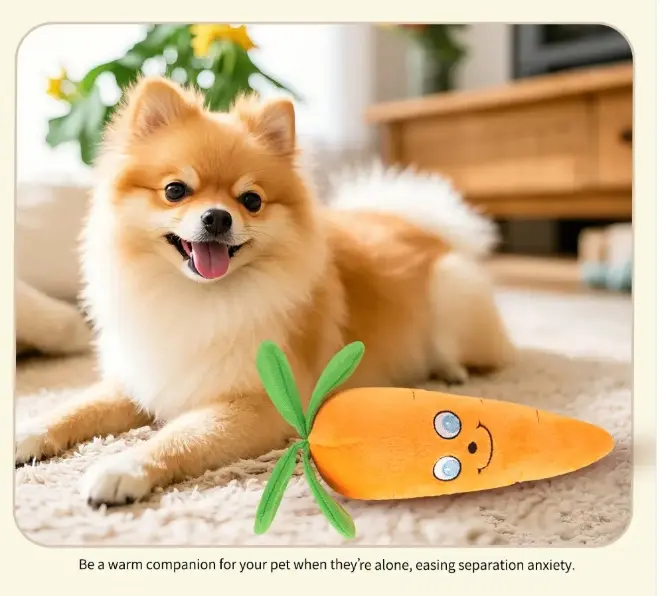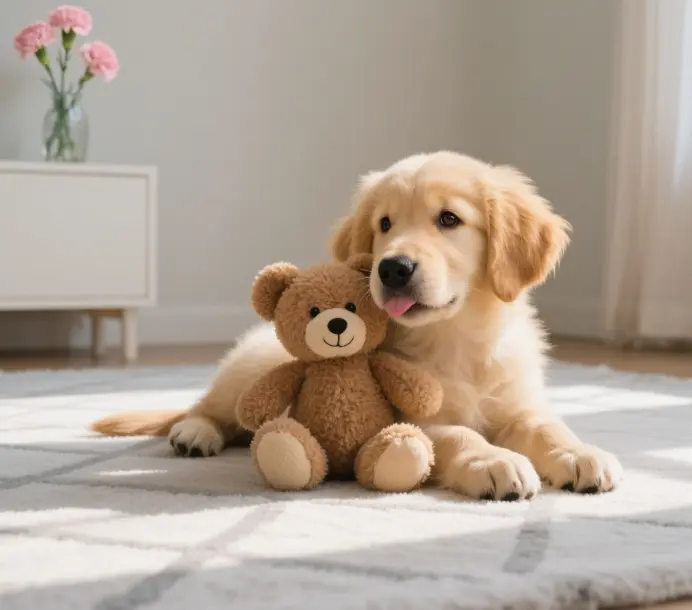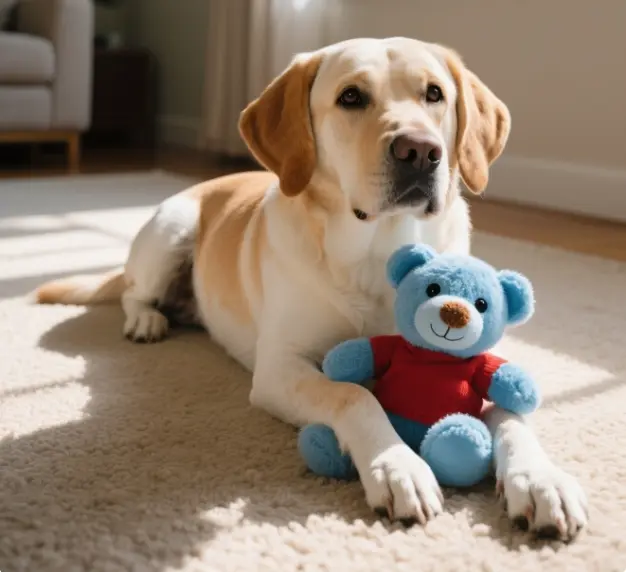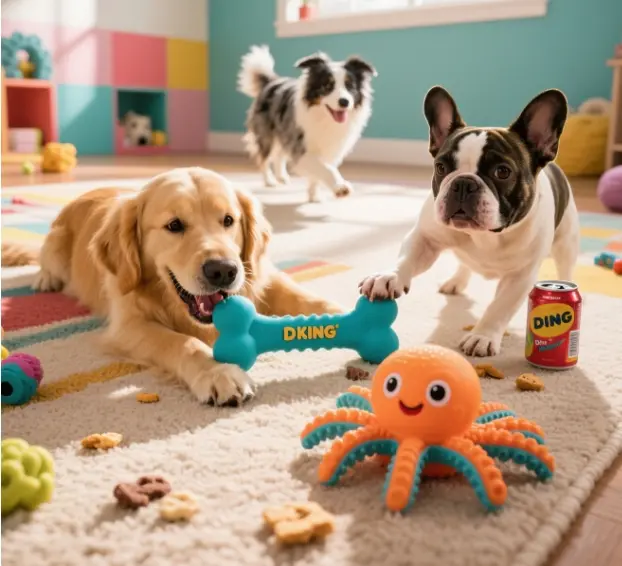News Categories
Featured News
0102030405
What are the benefits and drawbacks of plush toys for Corgis?
2025-07-15
For Corgis, plush toys offer benefits such as enhancing emotional bonds and exercising abilities, but they also have drawbacks related to accidental ingestion and hygiene. Here is a detailed analysis:

Benefits
- Providing emotional companionship: Corgis are pets that rely heavily on their owners. When the owner is out or busy, a plush toy can become their "little companion," offering them company and a sense of security, and alleviating feelings of loneliness and anxiety. Just like how a child might hold a doll to sleep, a plush toy can help a Corgi feel at ease when left alone.
- Satisfying chewing needs: Corgis have a strong urge to chew during their teething period, and even as adults, they may chew to relieve stress. A plush toy can serve as a safe chewing object, satisfying their natural chewing instinct to a certain extent and reducing damage to furniture, shoes, and other items.
- Exercising oral muscles: When playing with a plush toy, especially when grabbing, biting, or tugging at it, Corgis need to continuously use their oral muscles. This helps exercise their biting force and the strength of their oral muscles, which is beneficial for maintaining their chewing and eating abilities.
- Enhancing interactive fun: Owners can use plush toys to play interactive games with Corgis, such as throwing and fetching or tug-of-war. In this process, not only can the Corgi's motor skills be improved, but the bond between the owner and the dog can also be strengthened, making the interaction more enjoyable and fulfilling.
- Stimulating instinctive behaviors: The shape and texture of a plush toy may trigger a Corgi's hunting instinct. They will chase, pounce on, scratch, and bite the plush toy, simulating hunting scenarios during play. This is a release of their natural behaviors, helping to preserve their inherent nature and vitality.
Drawbacks
- Risk of accidental ingestion: If the plush toy is of poor quality, or if the Corgi plays with it too roughly, the toy may get damaged. The stuffing inside, such as cotton or fibers, could be ingested by the Corgi. These substances may accumulate in the dog's stomach and intestines, causing indigestion, intestinal blockage, and in severe cases, requiring surgical removal.
- Hygiene issues: When a Corgi plays with a plush toy, it may get saliva, hair, and other substances on the toy, which can easily breed bacteria and mites. If not cleaned in a timely manner, these bacteria and mites may affect the Corgi's health, leading to skin allergies, respiratory infections, and other problems.
- Risk of over-dependence: If a Corgi becomes overly attached to a plush toy, it may develop severe emotional issues such as anxiety and restlessness when separated from the toy, affecting its normal life and behavioral habits. For example, it may bark continuously or become agitated when going out or sleeping without the plush toy.
- Impact on concentration: Allowing a Corgi to play with a plush toy excessively may make it overly focused on the toy, leading to a lack of interest in other training or activities, which is not conducive to the dog's comprehensive training and development. For instance, during obedience training, the Corgi may get distracted by thinking about the plush toy and fail to focus on the training content.

